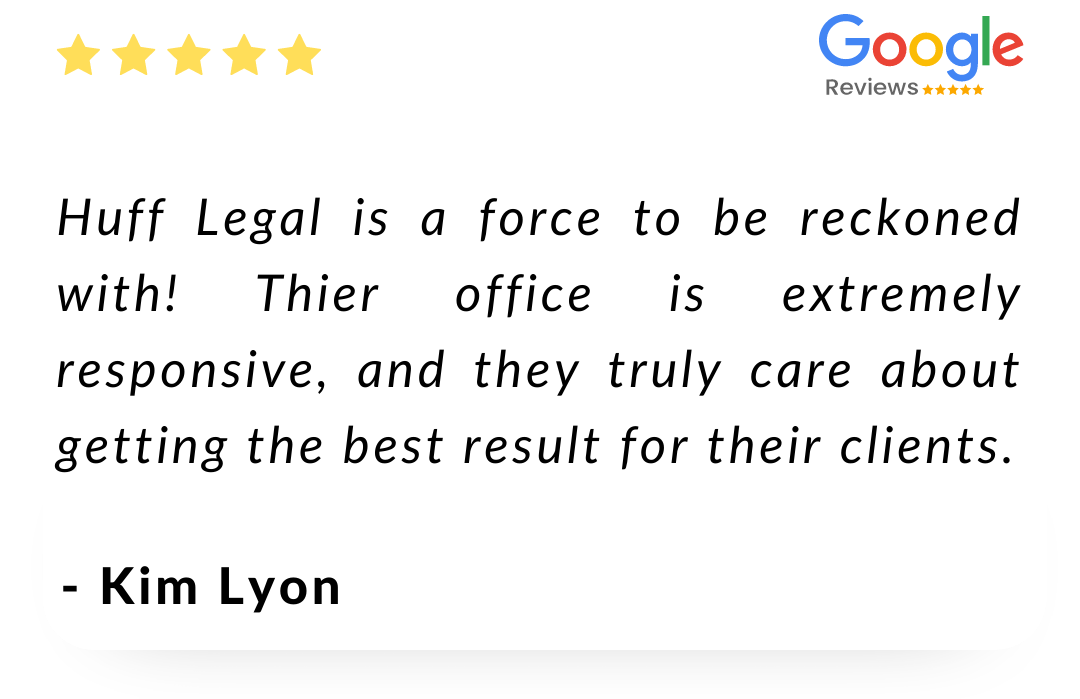Search and Seizure Laws California – Know Your Rights
Search and Seizure Laws California – Know Your Rights
California’s search and seizure laws protect your privacy by setting limits on when police can search or take your property. However, police sometimes search without proper authority, which can lead to legal issues for you.
This article explains your rights under California law, when a search warrant is needed, and common exceptions. Understanding these basics can help you recognize unlawful searches. Learn what you can do if your rights are violated and how these laws affect your case.
California Search and Seizure Laws and the "Reasonable Expectation of Privacy"
California’s search and seizure laws protect you from unreasonable police intrusion into your private spaces. They are rooted in both state law and the Fourth Amendment to the U.S. Constitution. Police need a valid reason to search your home, vehicle, person, or other property.
The law recognizes your “reasonable expectation of privacy” in these spaces. The standard generally protects you from searches unless police meet specific legal criteria. If law enforcement violates this expectation, you may be able to have any unlawfully obtained
California Search Warrants
A search warrant is a court order allowing police to conduct a search of specific places for particular items. California law requires police to obtain a warrant from a judge unless a clear exception applies.
Search Warrant Requirements in California
For a search warrant to be valid, it must meet strict requirements:
- Probable Cause: Police must present evidence to the judge that suggests a crime has occurred and that items related to the crime may be found in the place to be searched.
- Specificity: The warrant must clearly outline the area to be searched and the items sought, preventing overreach and protecting your rights.
- Judicial Approval: Only a judge can authorize a search warrant, adding a layer of oversight and accountability.
These requirements ensure that the government cannot invade your privacy without justification and that police actions remain within the bounds of the law.
Challenging a Search or Seizure Authorized by a Warrant
If police search your property with a warrant, you may still challenge the search if you believe the warrant or its execution was unlawful. Here’s how:
- Questioning Probable Cause: You can argue that the police lacked sufficient evidence to justify the search.
- Addressing Procedural Errors: If police exceeded the warrant’s scope or conducted the search improperly, your defense attorney can argue that the evidence should be excluded.
- Excluding Illegally Obtained Evidence: Known as the “exclusionary rule,” this principle prevents evidence from illegal searches from being used in court. The idea is to protect your rights by deterring unlawful police conduct.
Request a Free Consultation
Exceptions to the Warrant Requirement for Searches and Seizures
California law includes specific scenarios where police do not need a warrant to conduct a search. These exceptions are:
Exceptions for Searches of Homes/Residences
Typically, a home search requires a warrant. However, police can search without a warrant if:
- Voluntary Consent: You or another resident voluntarily agree to the search.
- Exigent Circumstances: If there is an immediate threat to safety, destruction of evidence, or a suspect fleeing, police can enter without a warrant.
- Lawful Arrest: Officers may search the immediate area for safety reasons or evidence when arresting someone in their home.
Exceptions for Searches of Vehicles
Due to the mobile nature of vehicles, the law provides several exceptions to warrant requirements:
- Probable Cause: If police believe there is evidence of a crime within the vehicle, they can search it without a warrant.
- Search Incident to Arrest: Officers may search the car for safety or evidence if an individual in the vehicle is arrested.
- Impounded Vehicles: When a vehicle is impounded, police may conduct an inventory search to record its contents.
Exceptions for Searches of Cell Phones and Computers
While electronic devices contain highly personal information, exceptions exist in specific cases:
- Exigent Circumstances: If police believe immediate access is essential to prevent harm or criminal activity, they may bypass a warrant.
- Consent: If you voluntarily provide access to your device, police can search it.
- Search Incident to Arrest: Though more restricted, certain situations may allow officers to check a device without a warrant, though California law typically requires a warrant for thorough digital searches.
Exceptions for Searches of an Individual's Person
When police stop individuals, their person may be subject to a warrantless search under certain conditions:
- Terry Stop (Stop and Frisk): Police can briefly detain and pat down an individual if they have reasonable suspicion of criminal activity.
- Search Incident to Arrest: Following an arrest, officers may search a person and any immediate belongings for safety or evidence purposes.
The "Plain View" Exception
The “plain view” doctrine allows officers to seize any visible items without a warrant. For this exception to apply:
- Officers must legally be in the location where they see the evidence.
- The incriminating nature of the object must be immediately apparent.
This doctrine often applies during routine traffic stops or home visits where evidence of a crime is in plain sight.
The "Exclusionary Rule" and Illegal Searches/Seizures
If the police conduct an illegal search, the “exclusionary rule” may apply to suppress the resulting evidence in court. This rule exists to discourage law enforcement from violating individuals’ rights.
Fruit of the Poisonous Tree Doctrine
The “fruit of the poisonous tree” doctrine prevents evidence from an illegal search from being used and any additional evidence discovered because of it. For example:
- Example: If police illegally search someone’s home and find a hotel key, and that key leads them to more evidence, that additional evidence may be suppressed as it is the “fruit” of the initial unlawful search.
Exceptions to this doctrine include:
- Independent Source: Evidence found through an independent, legal method.
- Inevitable Discovery: If it’s likely, the evidence would have been found legally without the illegal search.
- Attenuation: The exclusionary rule is inapplicable when the connection between the illegal search and evidence is remote.
Remedy for an Illegal Search and Seizure
If a search or seizure was illegal, you have the right to challenge the evidence in court. This is done through a motion to suppress evidence, where your attorney argues that the evidence should not be used due to the illegal search.
If the motion is successful, critical evidence may be excluded, potentially weakening or dismissing the prosecution’s case. This protection ensures your rights are respected and can be instrumental in achieving a fair trial.

As Seen On












Unlawful Searches and Seizures in California
Unlawful searches and seizures occur when law enforcement searches or seizes property without a valid legal basis, violating constitutional rights. Evidence gathered through these means can often be challenged and excluded from court.
Understanding Unlawful Search and Seizure
A search or seizure is unlawful when it occurs without a valid warrant, proper consent, or a legal exception. For example, without probable cause or a judge-approved warrant, law enforcement cannot lawfully search your home or personal belongings.
Exceptions to this rule exist, such as when evidence is in plain view or during a lawful arrest. If none of these apply, the search or seizure is typically illegal.
Challenging Unlawful Searches and Seizures
Challenging an unlawful search involves filing a motion to suppress evidence, aiming to exclude improperly obtained evidence. Proving that a search violated legal standards, like lacking probable cause or exceeding the warrant’s scope, can result in the court dismissing this evidence.
Successfully challenging unlawful searches often weakens the prosecution’s case and can lead to reduced charges or case dismissal.
FAQ:
What are the rules for search and seizure?
The rules for search and seizure primarily protect individuals from unlawful searches. Generally, police need a warrant, probable cause, or consent to legally search you or your property.
What is Rule 41 search and seizure?
Rule 41 of the Federal Rules of Criminal Procedure governs the issuance of search warrants in federal cases. It outlines how warrants can be obtained and executed and the scope of what can be searched or seized.
What are some examples of unreasonable searches and seizures?
Examples include:
- Searching a home without a warrant or valid consent.
- Stopping and searching someone without reasonable suspicion.
- Accessing a cell phone without a warrant.
In these cases, any gathered evidence may be dismissed in court.
Protect Your Rights with Expert Legal Support
Understanding your rights in search and seizure situations in California is essential to ensure fair treatment and prevent wrongful charges. If you believe your rights were violated, take immediate action to defend yourself.
At Huff Legal, we specialize in defending clients facing complex criminal law challenges, including cases of unlawful search and seizure. Our team is dedicated to protecting your rights and ensuring that justice prevails in every case.
Don’t let a violation of your rights go unanswered. Contact us today for a consultation, and let us help you navigate the legal system with clarity and strength.
What Clients Say About Us





Schedule Your Free Consultation Today
LET HUFF HELP YOU
As a former police officer and patrol supervisor and his time spent as a United States District Court Judicial Law Clerk to the Chief Judge, Attorney Huff knows how to navigate all levels of the complex criminal law system. We also have more than 55 years of combined experience dealing with various complex criminal legal matters and have helped just over 1,500 clients over the past few years.
Why Huff Is Your Best Option For Criminal Defense
55+ Years of Combined Experience
At Huff Legal, we have more than 55 years of combined experience dealing with complex criminal legal matters, which can oftentimes be quite challenging. In order to get the outcome you deserve, you need a team of experienced attorneys on your side, who can help you navigate the legal system, so you can move past this situation and focus on the life ahead of you!
5 Star Rating on Google
We have a proven track record of success and are dedicated to our clients’ best interests. If you’re looking for a law firm that will always have your back, look no further than Huff Legal. Just have a look at some of our amazing client reviews over here!
1,500+ Happy Clients
Over the years, we’ve had the privilege of helping over 1,500 clients with their legal needs. When you work with us, you can be confident that you’re getting the best possible legal representation. We’re proud of our track record and our reputation for being a firm that delivers great results.
What Our Clients Say About Us


Sheila


Abel Resendiz


Manuela Frazier


Doris
Contact Huff Today
Request A Free Consultation
* Free consultations only available for Criminal Defense


In legal terms, an accessory to murder refers to an individual who aids, abets, or otherwise assists in committing a murder. While the specifics may vary across jurisdictions, California law treats accessories to murder as active participants in the crime, holding them accountable for their actions. In San Francisco Bay Area, there are two primary types of accessories to murder:
In the event that you find yourself in the Bay Area facing accessory to murder charges, you should first call a criminal defense attorney who can help you defend your rights and lessen the effects of the investigation. Contact an attorney at Huff Legal as soon as possible following your arrest. An accomplished attorney from Huff Legal will thoroughly examine your case, who will then develop a strategy and build a defense.
